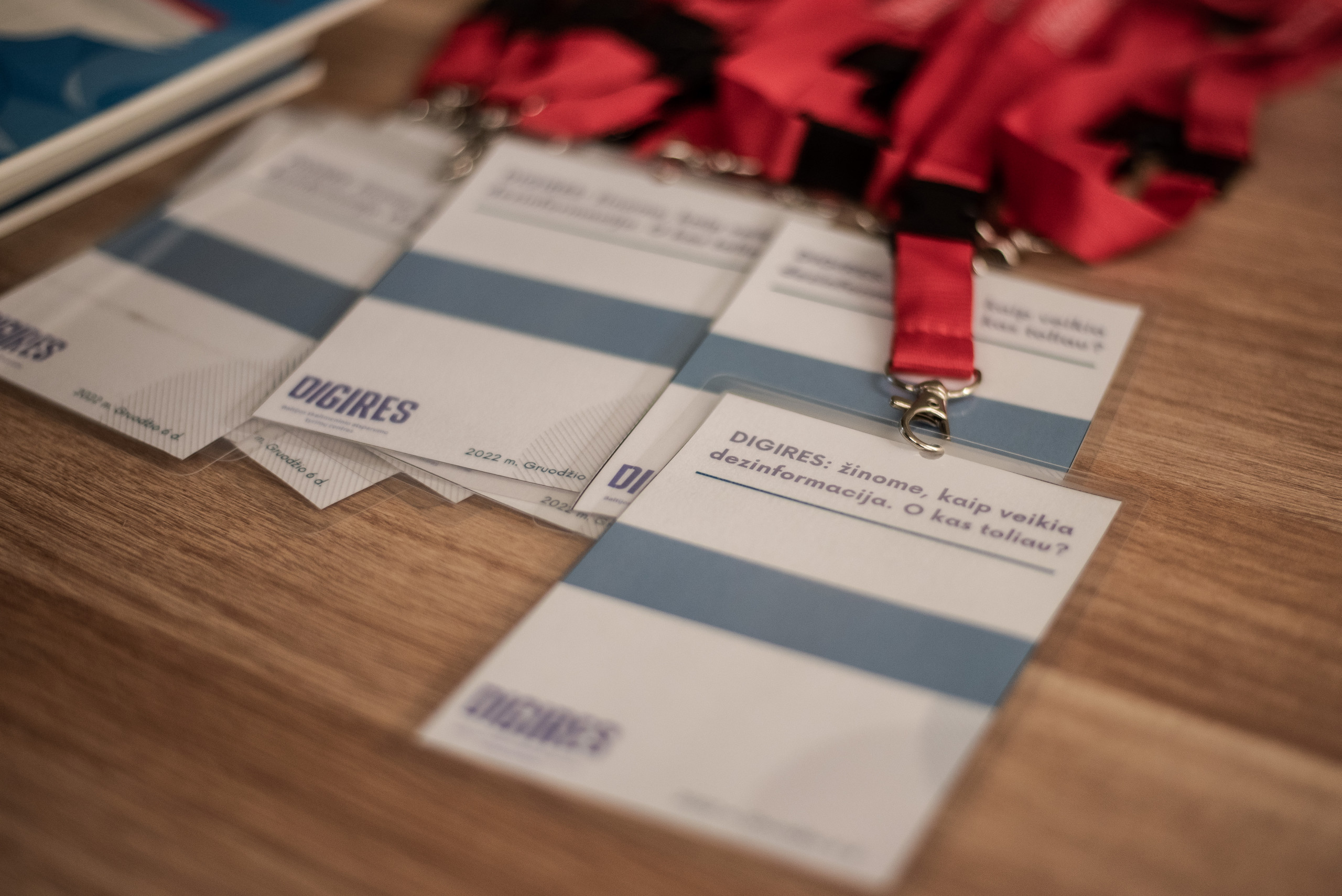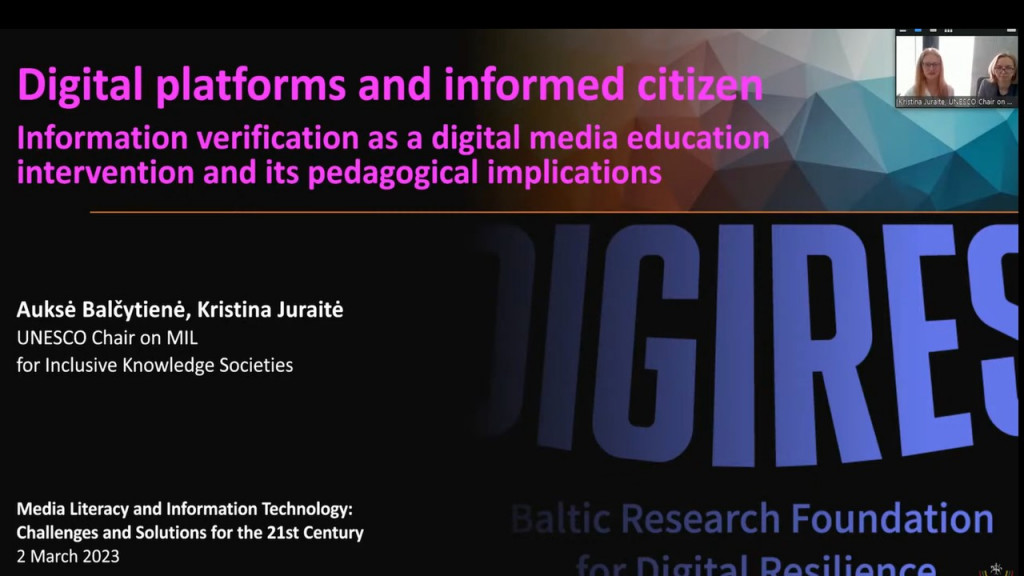 Back
Back

During the international scientific conference “Media Literacy and Information Technology: Challenges and Solutions for the 21st Century” held on March 2-3 at the Parliament of the Republic of Lithuania and the Academy of Education of Vytautas Magnus University, the DIGIRES project manager, chief researcher prof. dr. Auksė Balčytienė and professor of the Department of Public Communication at VMU, prof. dr. Kristina Juraitė presented the report “Digital platforms and informed citizen: information verification as a digital media education intervention and its pedagogical implications”.
The researchers spoke about the need to increase the resilience of citizens by using information verification techniques, presented the results of the conducted surveys, the Lateral Reading Method, Media Literacy Toolkit developed by DIGIRES team and engaging videos.
Conference record (in English)
Presentation “Digital platforms and informed citizen: information verification as a digital media education intervention and its pedagogical implications” made by prof. dr. Auksė Balčytinė and prof. dr. Kristina Juraitė you can watch from 03:27:00

“We know what kind of environment we live in, what disinformation is and how it works, but what do we do with all that knowledge? Do we know what we have to do next?”, prof. dr. Auksė Balčytienė at the beginning of the presentation asked.
According to the scientist, we live in an environment of various disturbances. One of the most important is information disturbances. Therefore, special instruments, structures and infrastructures, pedagogical interventions are needed to help citizens become informed and resilient.
Prof. dr. Kristina Juraitė said that an inclusive and systematic approach to media literacy is necessary. She presented the results of the Eurobarometer and Eurostat surveys, which showed that not only the young generation, but all media users in general use social networks as their main source of information, and this trend continues to grow.
A. Balčytienė emphasized the importance of raising doubt and questions when consuming information, and singled out the Lateral Reading Method as one of the techniques for it.
Scientists gave attention to cooperation model, which was used to create the training guide. “Disinformation is such a phenomenon that it is impossible to evaluate it from only one point of view. We believe that cooperative partnerships are extremely important in creating various training programs in the future”, A. Balčytienė said.
“Our information verification model can be useful for media users of various ages, including children, older people and professionals who face the challenges that information environment poses”, K. Juraitė said.
According to A. Balčytienė, the audience must participate, be active, but we cannot say that it is solely responsible for everything. Everyone has to get involved, collaborate, share and ensure media literacy. “Developing resilience requires more than one mentor – an entire support network of mentors. A partnership can help to create this structure. Only then we will be able to hope that citizens will become resilient and sustainable democracy will develop”, A. Balčytienė said.
During the conference, foreign experts shared insights on the topic of media literacy and its importance for public information security.
The organizer of the conference is Committee on National Security and Defense together with Vytautas Magnus University.